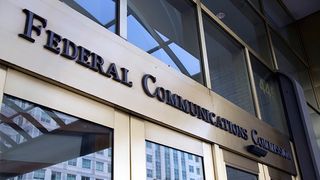Trump Team Signals FCC Remake

Related: Trump Nominees Trigger Big Ad Buys
Industry players looking for a deregulatory remake of the FCC were buoyed by B&C’s exclusive online report that the incoming Trump Administration has signed off on an approach to remaking the Federal Communications Commission offered by the FCC transition team majority.
It is one that squares with the deregulatory philosophies of FCC Republicans Ajit Pai and Michael O’Rielly, who will be two of the three Republican votes on the commission, and one of them possibly the chair.
That approach would be, as a first step, to restructure FCC bureaus to better reflect the convergence of the digital age; eventually, the approach would mean moving functions deemed “duplicative”—such as, say, competition and consumer protection—to other agencies, particularly the Federal Trade Commission.
While some have described the plan as one to eliminate the FCC—and certainly many if not most of its functions could be reapportioned—landing team members Jeff Eisenach and Rosyln Layton have argued that what remains would be “a more coherent and streamlined” agency that “would more effectively serve the goals of consumers, competitors and Congress.”
“It’s encouraging that the Trump transition team is looking to do more than tinker around the edges with respect to reforming the FCC and communications policy,” said Randolph May, president of the free market think tank Freestate Foundation. “It’s encouraging that the incoming Trump Administration apparently agrees.” Perhaps, but it will take some help from Congress to get it done. “Congress will need to be involved in affecting some of the changes,” added May.
“If ever there was a need to, and opportunity for, Congress to modernize the FCC for the 21st century, it is now,” agreed Scott Cleland, chairman of the broadband company-backed NetCompetition. “The most modern part of America’s economy currently is mired in the most obsolete regulatory authority and system, driven by 1880s-era railroad thinking and 1934 telephone monopoly law.”
Broadcasting & Cable Newsletter
The smarter way to stay on top of broadcasting and cable industry. Sign up below
John Bergmayer, Public Knowledge senior counsel, agrees Congress will have to get involved. Though he says internal rearrangement is par the course, he does not agree that reassigning FCC responsibilities is the way to go.
“Some FCC restructuring—such as moving bureaus around—is not that unusual and the new chairman and majority may have discretion to undertake that kind of reorganization,” Bergmayer said, while adding: “The FCC doesn’t determine what its statutory obligations are—Congress does. So some of the more sweeping reform ideas would have to be handled by Congress.”
But as to moving competition and consumer protection oversight to the FTC, Bergmayer has big issues.
“There may be those with the baseline idea that ‘consumer protection/issues are all the same and should be handled by one unified agency,” said Bergmayer. “I don’t think that is right: The physical infrastructure industries that the FCC deals with, for instance, raise issues that should be dealt with under a distinct framework, access to communications technology is essential to participation in the economy, and media industries have many ‘public interest’ style issues that don’t fit neatly into a pure competition/consumer protection framework. Relatedly, the idea that antitrust or the FTC are enough to handle all consumer protection and competition issues is, I think, wrong.”
Contributing editor John Eggerton has been an editor and/or writer on media regulation, legislation and policy for over four decades, including covering the FCC, FTC, Congress, the major media trade associations, and the federal courts. In addition to Multichannel News and Broadcasting + Cable, his work has appeared in Radio World, TV Technology, TV Fax, This Week in Consumer Electronics, Variety and the Encyclopedia Britannica.

